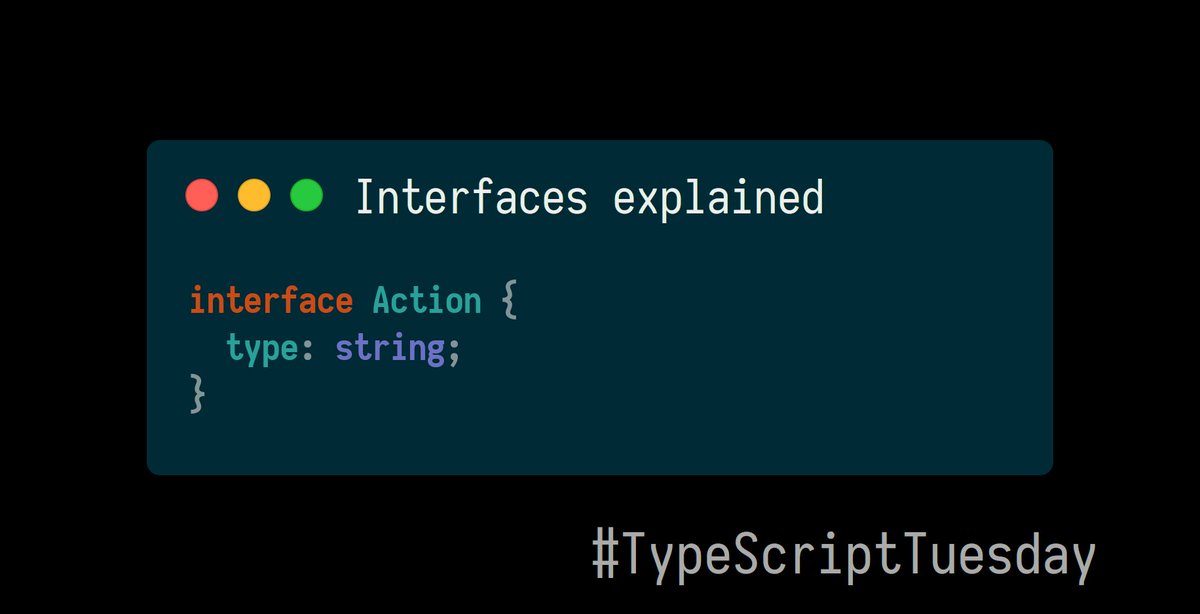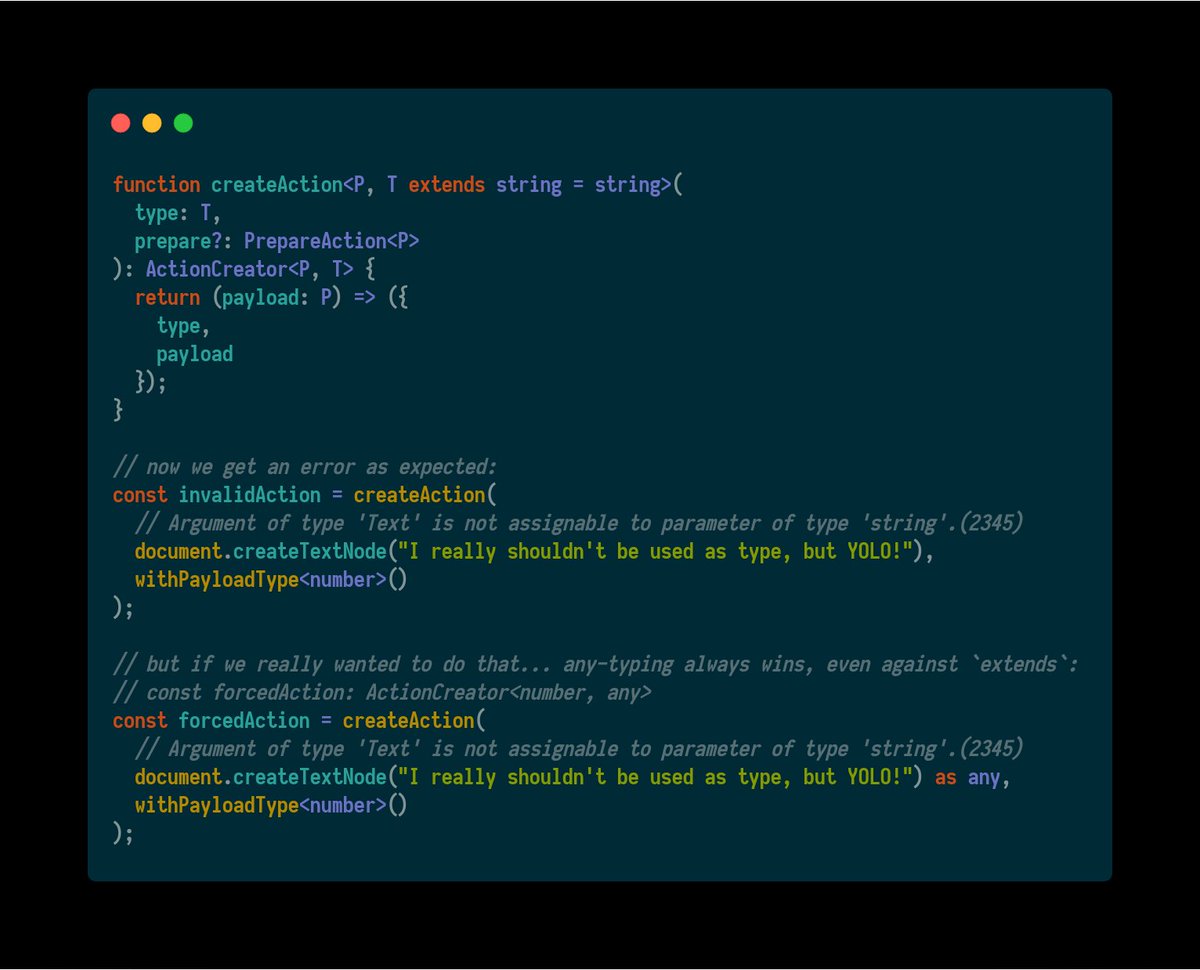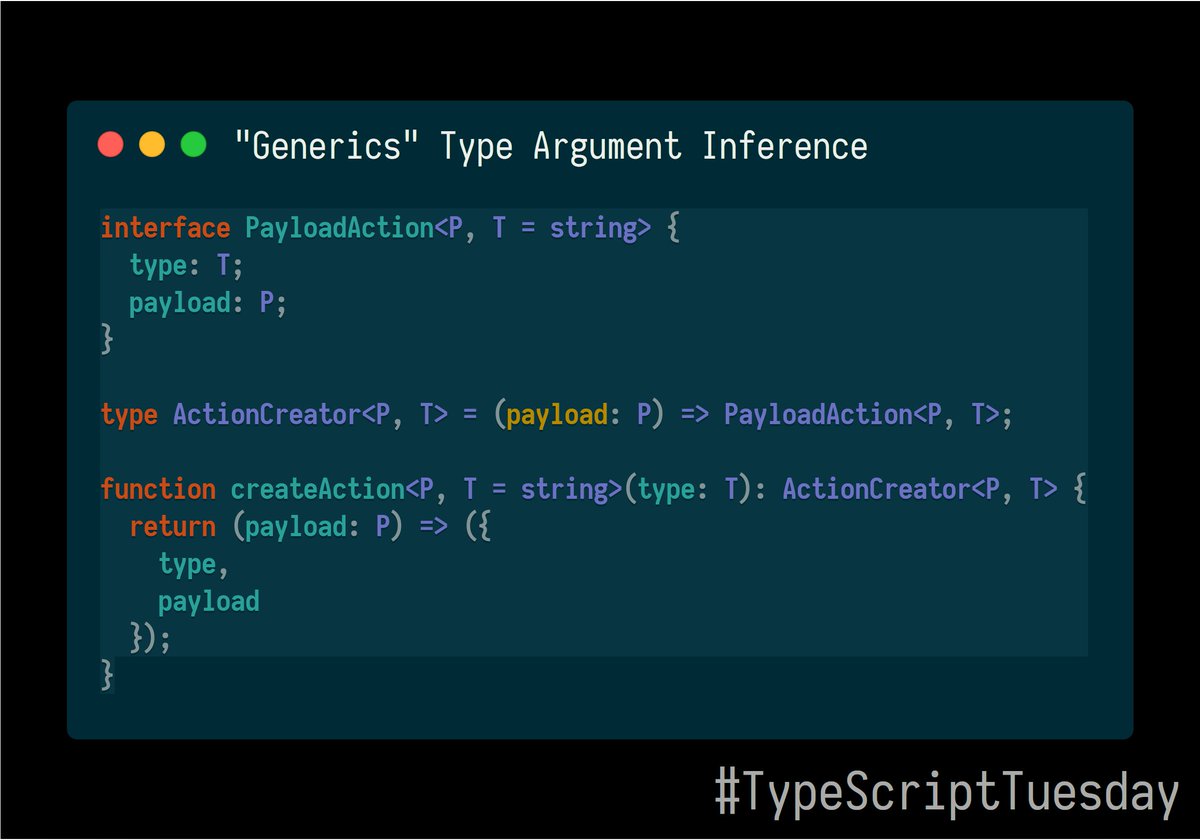
developer at @mayflowergmbh
Redux Toolkit co-maintainer
creator of RTK-Query
#TypeScript #React #Redux
How to get URL link on X (Twitter) App


 An interface can also extend another interface.
An interface can also extend another interface.
 This can be solved by using the `extends` keyword, which allows us to restrict a Type Argument. So here, we state that out `T` argument always has to be a valid `string`.
This can be solved by using the `extends` keyword, which allows us to restrict a Type Argument. So here, we state that out `T` argument always has to be a valid `string`.

 Here, we call this function three ways:
Here, we call this function three ways: